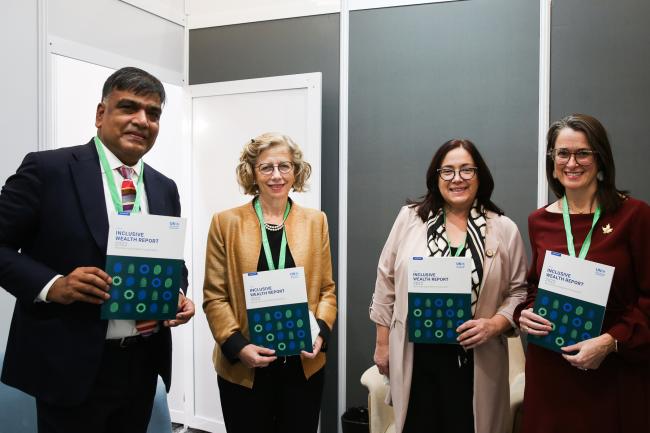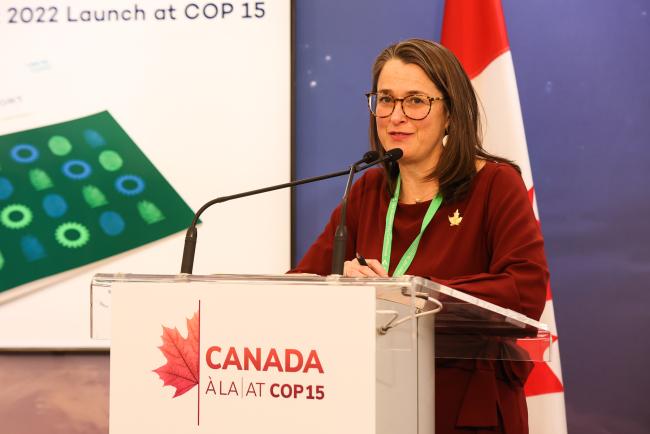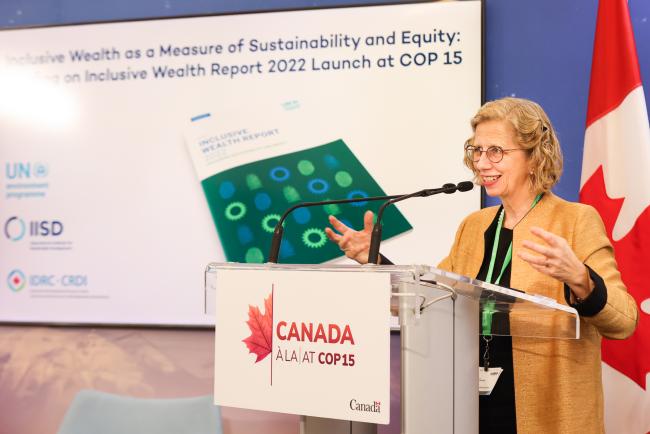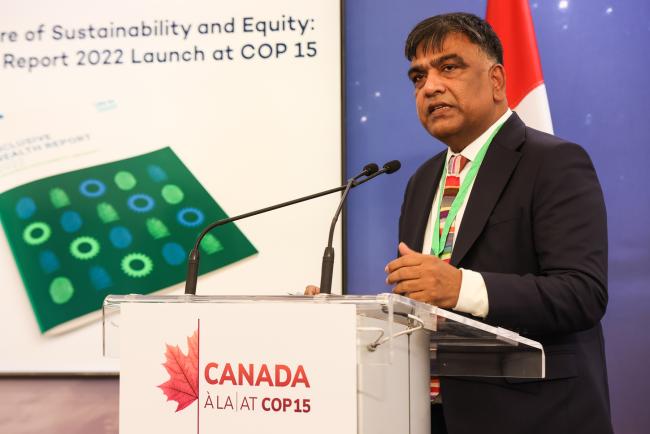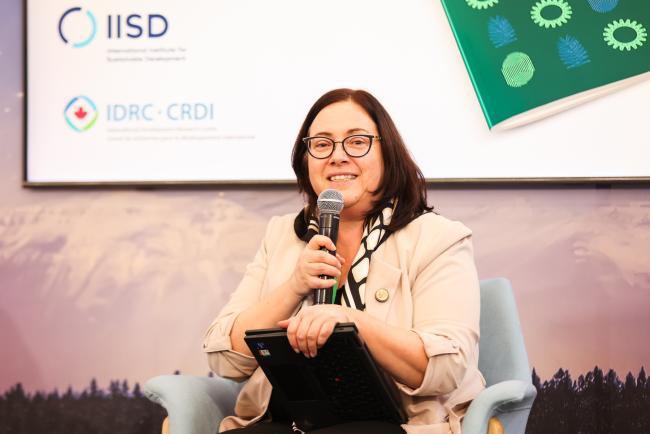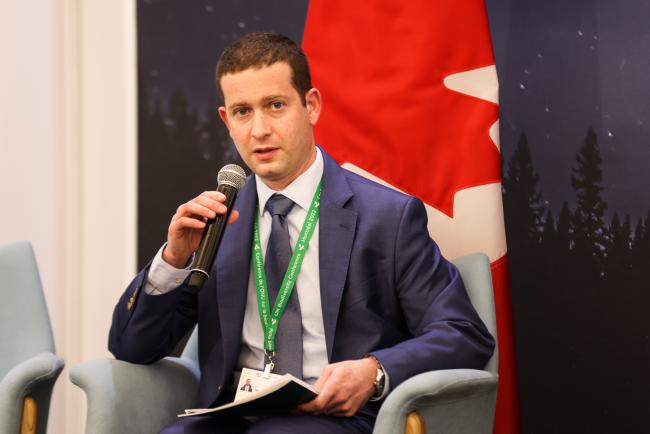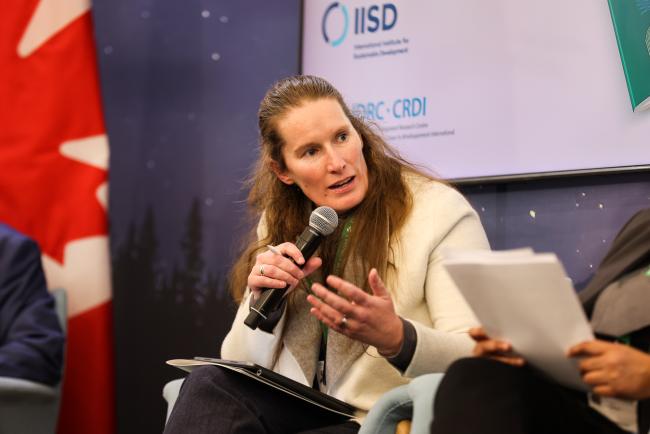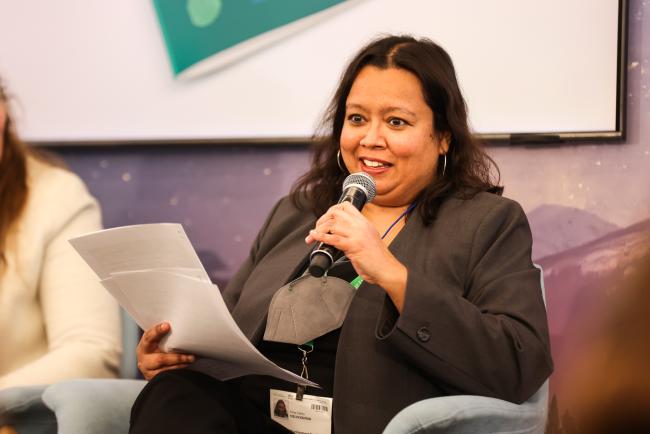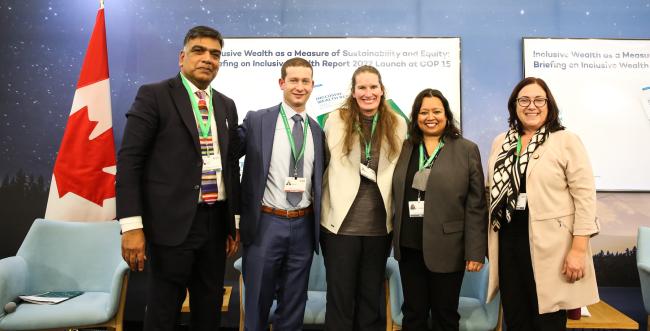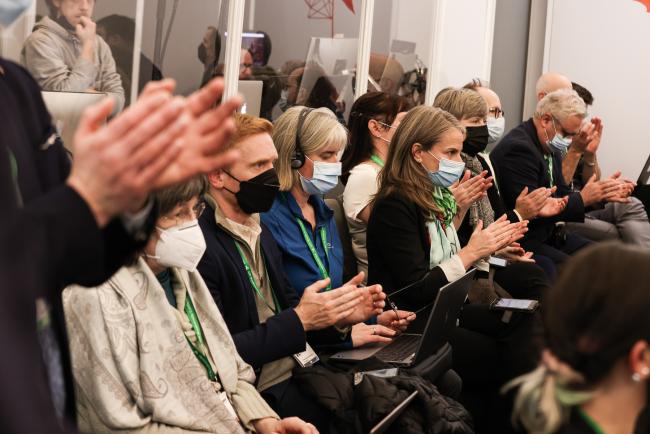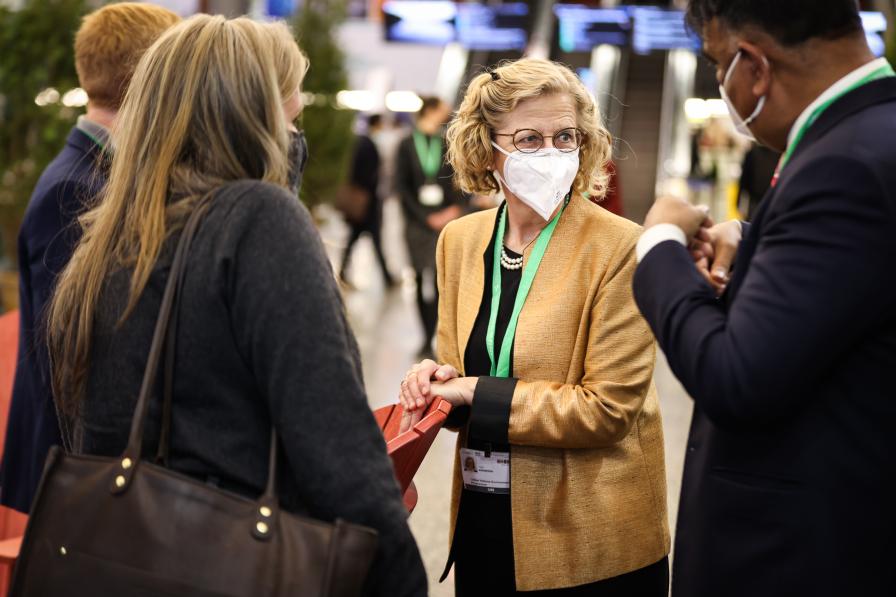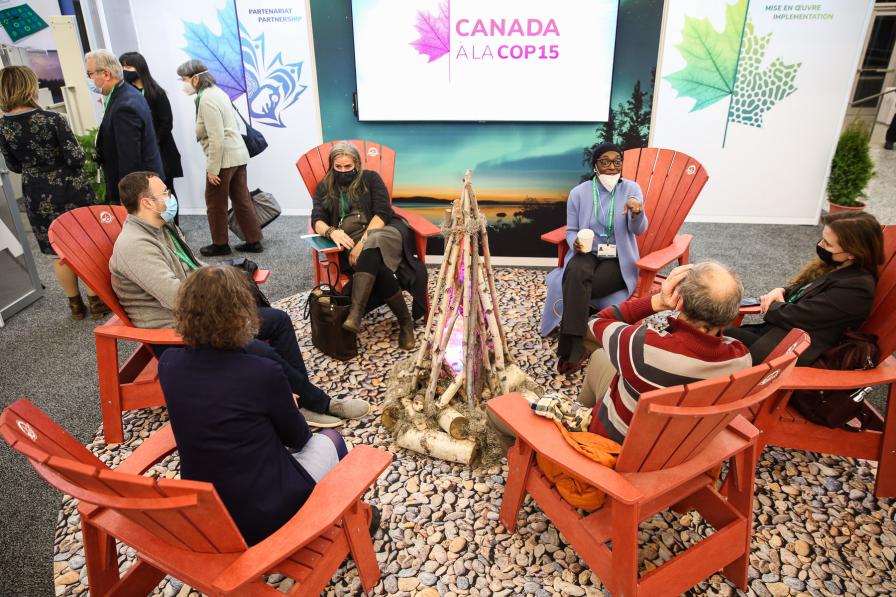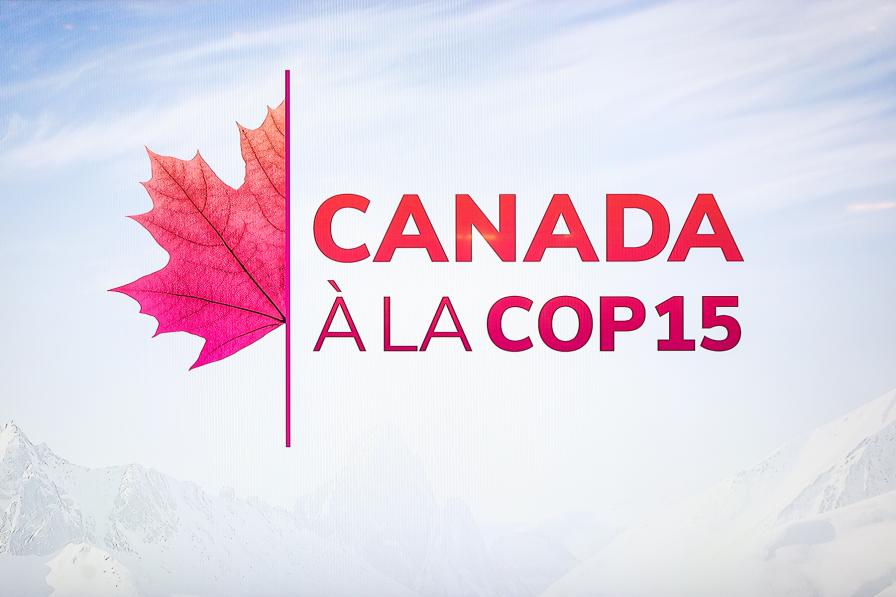About
This side event launched UNEP's new Inclusive Wealth Report, which dives into data on assets and production—and the boundaries of produced, human, and natural capital—for 163 countries, as policymakers look for measures of progress that count the value of nature.
There is a growing realization that primarily gauging progress and sustainability through conventional economic measures, such as Gross Domestic Product (GDP), is inadequate. These measures fail to capture the value of nature or the long-term sustainability of human activity. This collaborative event, between the International Institute for Sustainable Development (IISD), International Development Research Centre (IDRC), and UN Environment Programme (UNEP), addressed inclusive wealth, which measures the assets that underpin human wellbeing: natural, human, social, produced, and financial capital. Measuring inclusive wealth is key to spurring sustainable investments across policy areas. The event sought to help countries estimate the value of natural capital and biodiversity and explore data challenges and policy implications.
Opening the event, Catherine Stewart, Ambassador for Climate Change, Canada, drew attention to the global recognition that nature is under threat. She stressed that governments must act, in close collaboration with all stakeholders including, among others, the private sector and Indigenous Peoples. She emphasized the need for coordinated approaches to address the threats presented by climate change and biodiversity loss.
Inger Andersen, Executive Director, UNEP, said GDP used to be considered a sufficient measure of wealth and wellbeing, but underlined that it does not account for negative externalities, including environmental damage, and is thus an inadequate measure of wealth or sustainability. She said GDP is easy to quantify and measure, but has negative impacts on sustainability, the environment, equity, and intergenerational justice. She described UNEP’s Inclusive Wealth Index (IWI) as the organization’s flagship response to the “Beyond GDP” movement, underlining that inclusive wealth is a sophisticated yet streamlined measure of progress. She said manufactured and human capital have increased over the decades, but natural capital, which enables welfare and survival has dropped by 28% or by 50% per capita due to global population growth. She called for thinking of “stock” rather than “flow” to understand true wealth.
Pushpam Kumar, UNEP, introduced the new Inclusive Wealth Report 2022, which dives into the data on assets and production and the boundaries of produced, human, and natural capital for 163 countries in 2019. He outlined the findings, including that:
- natural capital is declining;
- many parts of the Global South are consuming beyond their means;
- climate change damages natural capital in terms of the accounting or shadow price, but not in terms of market price, which does not count externalities; and
- the decline in natural capital is correlated with and likely induces inequality.
He recommended: investing in sustainable natural capital to reduce inequalities; developing a strong community of practice with capacity in data and methodology; and engaging with financial institutions, treasuries, and development sectors, and designing policy choices based on wealth.
Dominique Charron, IDRC, moderated a panel session on details and use of the report. Eli Fenichel, Office of Science and Technology Policy, US White House, said his country is not using an IWI but is working toward connecting environmental and economic indicators with natural capital accounting. He cited a draft National Strategy for Environmental Economic Decisions, published in August 2022 for public comment, noting a 15-year US mission to “make space on the balance sheet” for natural assets in an all-of-government” approach.
Valerie Hickey, World Bank, said her organization has begun natural capital accounting in numerous countries, excluding nonrenewable capital. She asserted that development and growth must continue while preserving the natural assets that underpin economic activity. She cited the World Bank’s report, The Changing Wealth of Nations 2021: Managing Assets for the Future, which aims to get natural capital on all countries’ balance sheets. She called for: moving toward convergence in national accounts just as GDP is standardized across countries; communicating this work intelligibly to non-economists; and telling economists about it, not as part of an “ecological agenda,” but as mainstreamed into their agenda.
Sonja Teelucksingh, Advisor to the CEO, Global Environment Facility (GEF), called for integrating inclusive wealth into all decision-making levels. She noted the Facility’s recent work going “beyond GDP” to allocate funds to recipient countries by considering alternatives to GDP, while still using the GDP metric, during the eighth replenishment of the GEF (GEF-8). She noted the GEF governing body mandated considering an additional metric for GEF-9. She said the GEF must give the right signals to recipient countries and design projects, in partnership, that account for natural capital. She expressed hope for a positive trajectory in the future.
Organizers: IISD, IDRC, the Government of Canada, and UNEP
Contact: Livia Bizikova, IISD lbizikova@iisd.ca
For more information: https://www.iisd.org/events/inclusive-wealth-report-2022-launch-cop-15
Watch the full recording: https://youtu.be/_NwgnoIJZGI
All ENB photos are free to use with attribution. For this event, please use: Photo by IISD/ENB | Natalia Mroz
To receive free coverage of global environmental events delivered to your inbox, subscribe to the ENB Update newsletter.


